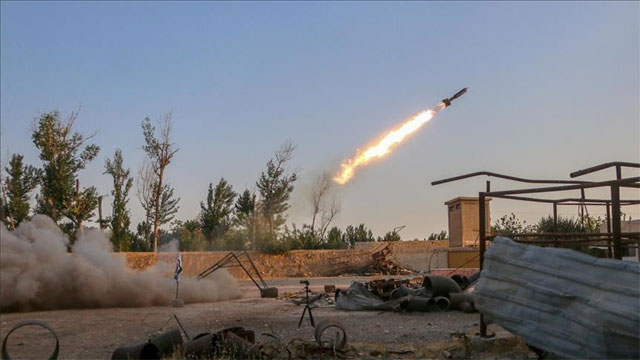Daijiworld Media Network - Sanaa
Sanaa, Aug 16: Yemen’s Houthi armed group has claimed responsibility for launching a hypersonic ballistic missile at Ben Gurion Airport in Israel, in what they described as a retaliatory operation in support of Palestinians in Gaza.
In a televised statement aired on Houthi-run Al-Masirah TV, military spokesperson Yahya Sarea said the strike was a "qualitative military operation" that successfully hit its target. “The operation forced millions of Israelis into shelters and disrupted airport operations,” he claimed.
Calling it a “victory for the oppressed Palestinian people,” Sarea said the attack was a response to Israel’s “genocide and starvation” policies in the Gaza Strip.

However, Israel's Defense Forces (IDF) reported that the missile, launched from Yemen, was intercepted by Israeli aerial defense systems, and no damage or casualties were reported. Sirens had sounded in multiple areas prior to the interception, according to local reports.
Escalating Regional Hostilities
The Houthis, who control northern Yemen including the capital Sanaa, have intensified attacks on Israel since the outbreak of the Gaza war in October 2023, which began after Hamas launched a surprise attack on Israel.
In response to Houthi aggression, Israel has conducted multiple airstrikes on Houthi targets in Yemen — most recently in the port city of Hodeidah.
Just a day before the latest missile incident, the Houthis claimed they had launched four drone attacks targeting Haifa, Negev, Eilat, and Be’er Sheva, reportedly using six drones. Sarea said those strikes also achieved their objectives and were similarly framed as acts of solidarity with Palestinians.
Renewed Threats at Sea
In July 2025, the Houthis resumed attacks on commercial shipping in the Red Sea and Gulf of Aden, targeting vessels they allege have ties to Israel. These attacks are part of their broader campaign to pressure Israel into ending its military operations in Gaza.
Broader Context
The Houthis’ ongoing attacks on Israeli territory and interests — both on land and at sea — underscore the growing regional impact of the Israel-Hamas war, drawing in militant groups from across the Middle East. Despite Israel’s defenses largely neutralizing these threats, the incidents have heightened tensions and complicated international diplomatic efforts aimed at de-escalation.